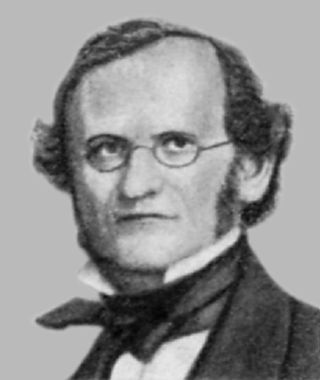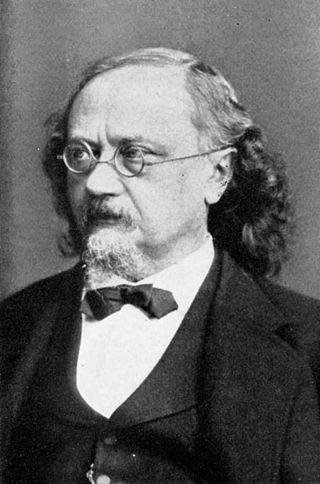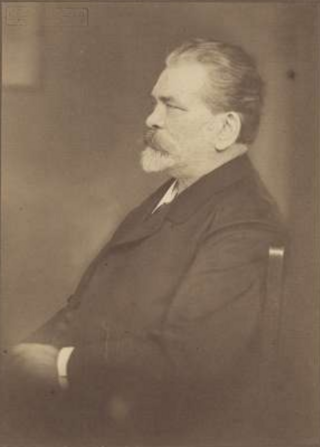External links
- Die Grenzboten, digitalised all years in the Bremen State and University Library, persistent URL for the DFG-Viewer Archived 2016-02-17 at the Wayback Machine : http://nbn-resolving.de/urn:nbn:de:gbv:46:1-908
| Editor | Ignaz Kuranda, Gustav Freytag, Julian Schmidt, Georg Cleinow, Johannes Grunow |
|---|---|
| Categories | national liberal magazine |
| Frequency | weekly or fortnightly |
| First issue | 1841 |
| Final issue | 1922 |
Die Grenzboten was a German language, national liberal magazine published from 1841 to 1922, sometimes weekly and sometimes fortnightly.
The journal was founded in 1841 by Ignaz Kuranda in Brussels, who was its editor until 1848. From 1842, Die Grenzboten was published by the publishing house of F. W. Grunow in Leipzig, later in Berlin. In 1848, Gustav Freytag and Julian Schmidt took over as editors. Freytag held this post until 1861 and again from 1867 to 1870; Schmidt until 1861. They made the magazine, not least through many of their own contributions, the most influential mouthpiece of the national-liberal bourgeoisie up to the founding of the German Reich in 1871. In 1870, Grunow became the sole owner and Hans Blum was in charge of editing until 1878, when Johannes Grunow took over the publication in conjunction with Gustav Wustmann. From that point, the orientation of the magazine changed from a purely liberal to a more conservative one. In 1849 Die Grenzboten was banned in Austria. From 1856 to 1870 and 1878 to 1890, Moritz Busch was one of its most productive editors.
Its subtitle was initially Blätter für Deutschland und Belgien ("Papers for Germany and Belgium"). This changed in 1842 to Eine deutsche Revue ("A German Revue"), in 1844 to Zeitschrift für Politik und Literatur ("Journal for Politics and Literature") and, in 1871, to Zeitschrift für Politik, Literatur und Kunst ("Journal for Politics, Literature and Art").
The journal was important because, through it, Schmidt and Freytag developed the theory of literary realism. In the decade from 1848 they were decisive influencers of literary discourse in Germany.

Georg Heinrich August Ewald was a German orientalist, Protestant theologian, and Biblical exegete. He studied at the University of Göttingen. In 1827 he became extraordinary professor there, in 1831 ordinary professor of theology, and in 1835 professor of oriental languages. In 1837, as a member of the Göttingen Seven, he lost his position at Göttingen on account of his protest against King Ernst August's abrogation of the liberal constitution, and became professor of theology at the University of Tübingen. In 1848, he returned to his old position at Göttingen. When Hanover was annexed by Prussia in 1866, Ewald became a defender of the rights of the ex-king. Among his chief works are: Complete Course on the Hebrew Language, The Poetical Books of the Old Testament, History of the People of Israel, and Antiquities of the People of Israel. Ewald represented the city of Hanover as a member of the Guelph faction in the North German and German Diets.

Gustav Freytag was a German novelist and playwright.

Franz Felix Adalbert Kuhn was a German philologist and folklorist.
Georg Benedikt Winer, German Protestant theologian, known for his linguistic studies of the New Testament. Theologically, Winer was an "anti-trinitarian".

Heinrich Julian Schmidt was a German journalist and historian of literature.

Heinrich Frauenlob, sometimes known as Henry of Meissen, was a Middle High German poet, a representative of both the Sangspruchdichtung and Minnesang genres. He was one of the most celebrated poets of the late medieval period, venerated and imitated well into the 15th century.

Julius Hermann Moritz Busch was a German publicist. He has been characterized as “Bismarck's Boswell.”

Ignaz Kuranda was an Austrian deputy and political writer of Bohemian origin.

Historische Zeitschrift, is a German scholarly journal of history and historiography. Founded in 1859 it was the first and for a time the foremost historical journal in Europe. It is published by Akademie Verlag GmbH, a subsidiary of Oldenbourg Wissenschaftsverlag GmbH.

Johann Gustav Stickel was a German theologian, orientalist and numismatist at Jena University.

Eugen Oswald, was a German journalist, translator, teacher and philologist who participated in the German revolutions of 1848–49.
The Zeitschrift für deutsches Altertum und deutsche Literatur is a quarterly peer-reviewed academic journal in the field of German studies with emphasis on the older periods. It was established in 1841 and is the oldest periodical in early Germanic studies still publishing.

Edward Schröder was a Germanist and mediaevalist who was a professor at the University of Göttingen and published editions of numerous texts.

The ceremonial Landesvater is a German college custom developed in the 18th century, where student caps are pierced with the blade of a sword, during the recital of a particular song. The song that accompanies this event is also called 'Landesvater'. The word Landesvater is also used as a name for the prime ministers of the individual German states, or Länder.

Otto Piper (1841–1921) was a German architectural historian who, with August von Cohausen (1812–1896), is regarded as one of the two founders of scientific research into castles.

Karl Gotthelf Jakob Weinhold was a German folklorist and linguist who specialized in German studies.

Bruno Baron von Freytag-Löringhoff was a German philosopher, mathematician and epistemologist. He was also a university lecturer at the University of Tübingen. During World War II, Freytag-Löringhoff worked as a mathematician in the In 7/VI, that was the signals intelligence agency of the Wehrmacht and worked with Fritz Menzer on the testing of cryptographic devices and procedures. Freytag-Löringhoff worked specifically on the testing of the m-40 cipher machine. His most important contributions to the history of logic and mathematics was his studies and descriptions from 1957, of the calculating machine, built by Wilhelm Schickard.

Colmar Grünhagen was a German archivist and historian. Almost all of his considerable published output concerns the History of Silesia.

Paul Wilhelm Schmidt was a German theologian who taught mostly in Basel. To this day he is considered one of the most important Swiss representatives of the liberal Protestant direction in theology and church at the end of the 19th and beginning of the 20th century.
Friedrich Gustav Schilling was a German musicologist, editor and lexicographer.